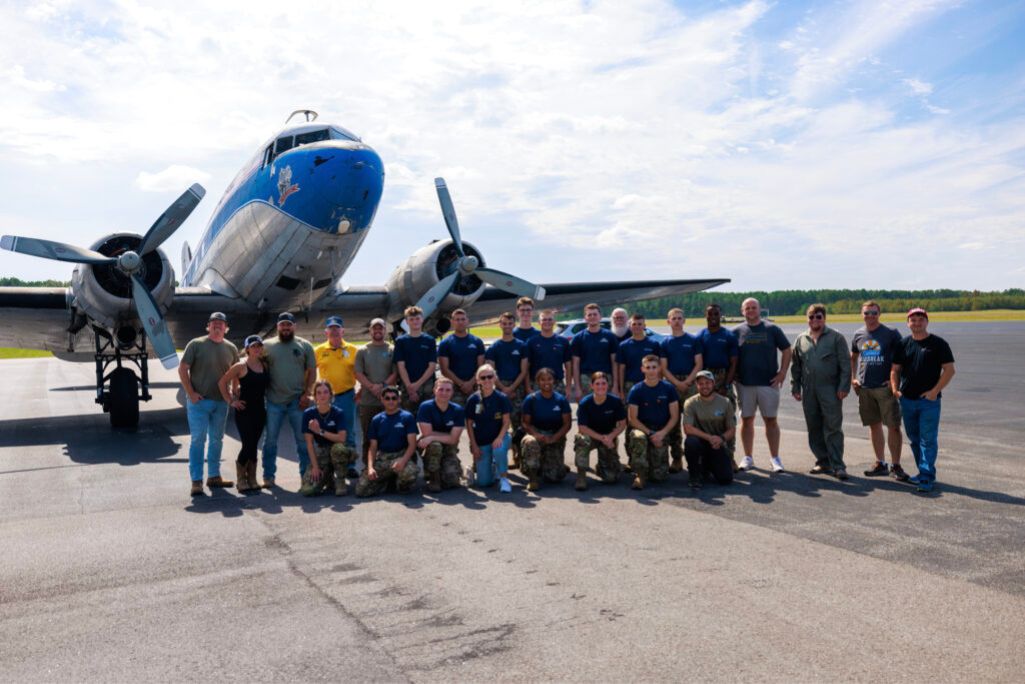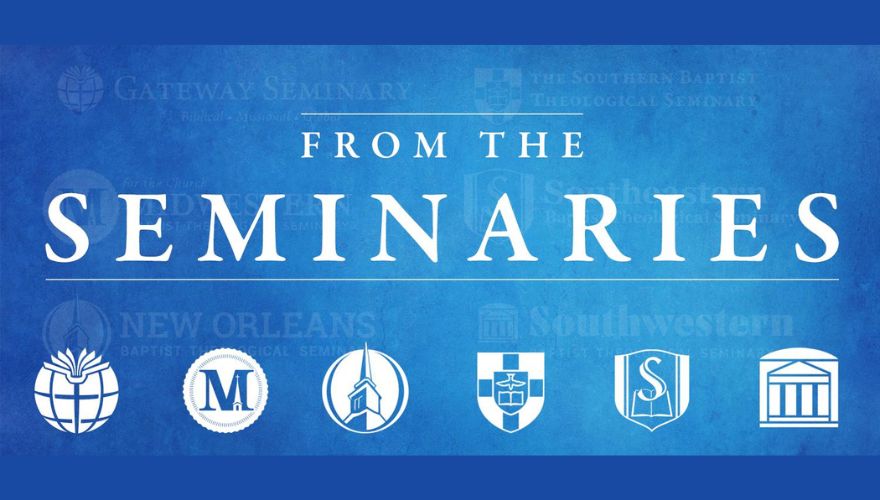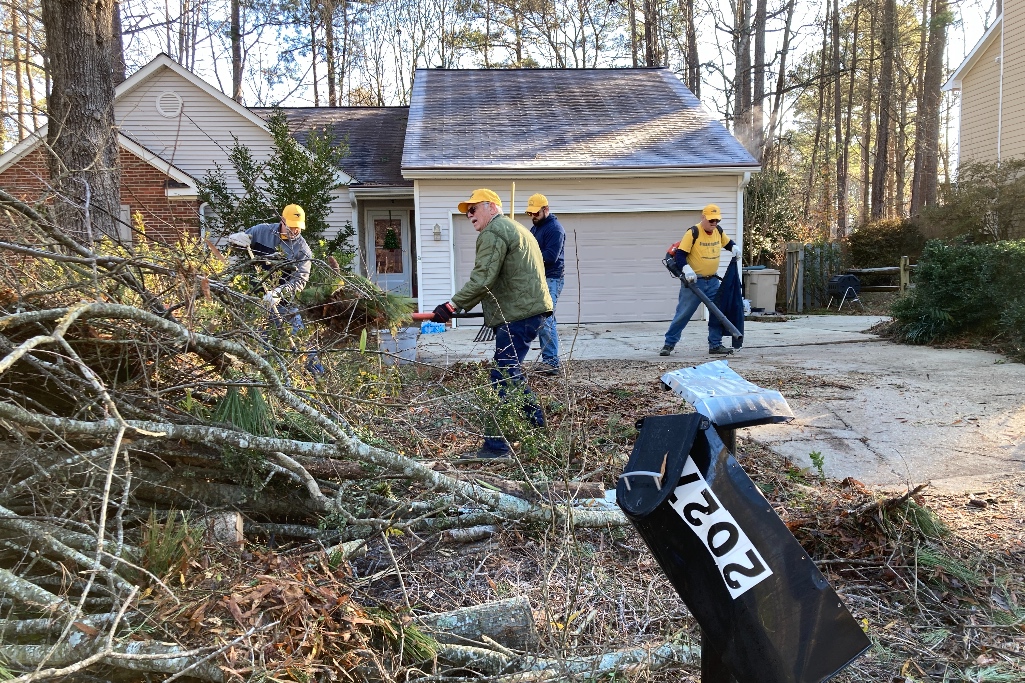
Volunteers from Southside Baptist Church in Gadsden, Ala., and the surrounding community gathered more than 7,000 pounds of supplies, including water, diapers and personal hygiene items, to support those affected by Hurricane Helene in South Carolina. Those supplies were then flown into South Carolina on a DC-7 aircraft where Baptist Collegiate Ministry students and other Southern Baptist Disaster Relief volunteers unloaded the plane.
GADSDEN, Ala. (BP) — News of Hurricane Helene’s devastation in the Carolinas began to spread when a group text message among seven Christian pilots that fly out of the Gadsden, Ala., airport kickstarted a plan to send help to storm survivors.
“Let’s see if we can fill up a DC-7 with supplies and get them to North Carolina,” wrote Tim Meeks, one of those local pilots.
That text set in motion events that would in time bring life-saving hope to people across the Helene-impacted regions of North Carolina and South Carolina.
Upon seeing the text, fellow Alabama pilot Andrew Richardson went to the leadership of his church, Southside Baptist Church in Gadsden, to ask if they could help gather donations and spread the word about the relief effort.
“Within hours of announcing we were gathering supplies, we had over 7,000 pounds ready to go,” Richardson said. “The community just showed up in a big way, and we’ve now delivered multiple planes and truckloads of supplies.”
What began as a small act of caring among a group of seven pilots soon became a multi-state effort among Southern Baptists that included local churches, Southern Baptist associations, collegiate ministries, state conventions and Southern Baptist Disaster Relief (SBDR) teams.
The coordinated effort demonstrated a broad Southern Baptist commitment to meet the large-scale physical and spiritual needs of those impacted by Hurricane Helene. Roughly 4,000 SBDR leaders and volunteers set up more than 40 response sites across six states as Send Relief provided resources and supplies to support their efforts.
“Disaster relief creates one of the best opportunities to set Southern Baptist cooperation in motion — one mission, one voice, working together to help the most vulnerable on their hardest day,” said Susan Peugh, the director of the South Carolina Baptist Disaster Relief.
When Peugh heard about the supplies that Richardson and the other pilots had collected, she thought about Aiken County. The county had an airport big enough to take the cargo plane and the supplies it contained. The county also had extensive material needs.
While South Carolina had not been hit with the massive flooding some of the devastated regions of North Carolina endured, Aiken County experienced extensive wind damage that had left residents without power and supplies. Local Southern Baptist churches were valiantly serving their community, but they couldn’t meet all the needs on their own.
SBDR crews from Alabama and South Carolina were already onsite with chainsaws in hand to help clear debris and serve Aiken County survivors. The cargo plane full of water, diapers, personal hygiene items and other supplies would support that effort.
Plus, Peugh knew a group of college students would be in Aiken County to help that weekend.
Bronson Baker, the director of Charleston Baptist Collegiate Ministries (BCM), had seen the impact of Southern Baptist Disaster Relief growing up in Oklahoma. As a college student at the University of Oklahoma, he had participated in relief work in some of the most damaging disasters in the state, including the tornado that ravaged Moore, Okla., in 2013.
When he became a BCM director first in Oklahoma and later in South Carolina, he wanted to involve his students in the life-changing work. One of his first conversations after moving to South Carolina in 2021 was with Peugh. He wanted his students, who were from the College of Charleston and the Citadel, to be ready when disaster came.
“I sent a message to my boss that Monday and asked if there were any opportunities to get involved. Susan got back to me, and we put up a sign-up sheet,” Baker said. “We had well over 100 students from both schools that signed up right away, saying, ‘We want to help.’”
Baker made the relief opportunity open to more than just members of his student ministry. People from his local Southern Baptist association, the Charleston Baptist Association, helped provide rides for the students since many didn’t have vehicles.
When the collegians arrived in Aiken County, the members of First Baptist Church of North Augusta welcomed them with accommodations and breakfast, even though they were dealing with limited power in their building and in many of their own homes.
“The kids just slept on the floor and got up early to work,” Baker said. “Despite the lack of power, the church made sure we had what we needed to get through the day.”
For the next three days, alongside SBDR volunteers, these students cleared downed trees, helped feed people, repaired homes, and more — including helping to unload the plane full of supplies from Richardson and the people of Gadsden, Ala.
“Hope has birthed out of disaster. Three-hundred and twenty-nine gospel conversations occurred while Disaster Relief teams served survivors of Hurricane Helene,” said Lee Clamp, associate executive director-treasure for South Carolina Baptists.
“At least 20 trusted Jesus as Lord,” Clamp said. “We were so thankful that other state conventions responded to us so quickly during a time of disaster as well as Send Relief. The beauty of cooperation is demonstrated when we serve together with our Southern Baptist family.”
Steve Simpson, who serves as the associational mission strategist at the Aiken County Baptist Association, says the association focused on getting the supplies to churches for distribution.
“What we’ve wanted as an association on the other side of this is for churches to be seen as the hero in their community,” Simpson said. “Obviously, Christ is the hero, but we wanted the local church to be the one that really got the win, not the association. We wanted our churches to shine.”
Back in Gadsden, Southern Baptist compassion hadn’t slowed. The people at Southside Baptist heard there were people in Aiken County who hadn’t eaten in two days. The nearest church had run out of goods to give away.
That’s when church member Chris Davenport and a friend decided to drive overnight to get a truckload of food to people in need.
“One of the greatest commandments in the Bible says that we are to love our neighbor as ourselves,” Davenport said. “If I love my neighbor as myself, I’m going to be concerned about his well-being, his spiritual well-being, as well as anything else he may need. Now, South Carolina, they’re not a mile down the road. They’re not my next-door neighbor, but they are my neighbor, even though they’re far away and need help.
“That’s what drives me — to love my neighbor as myself, to see everyone through the eyes of Jesus and recognize that there is a need. How can we meet that need?”


